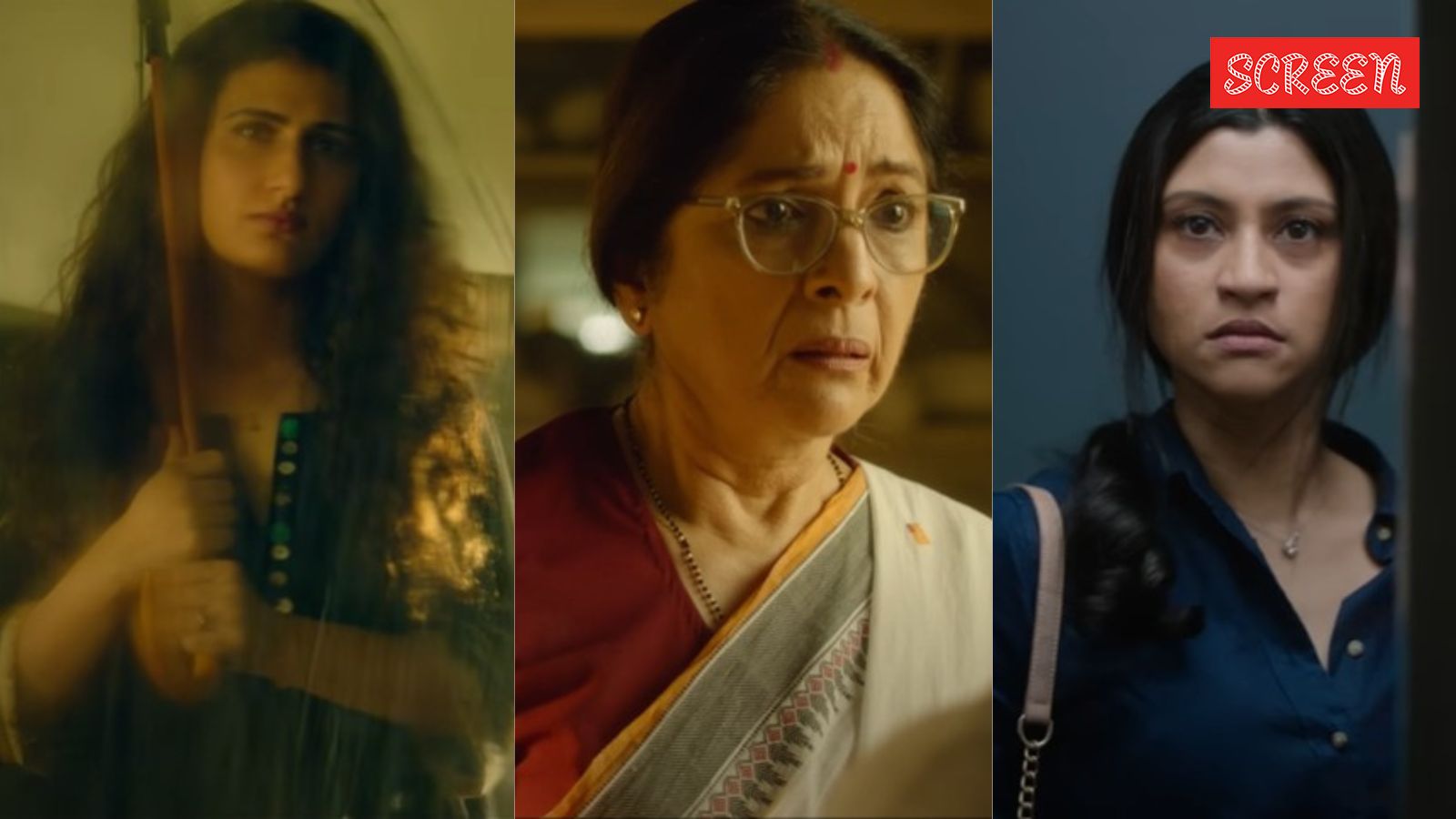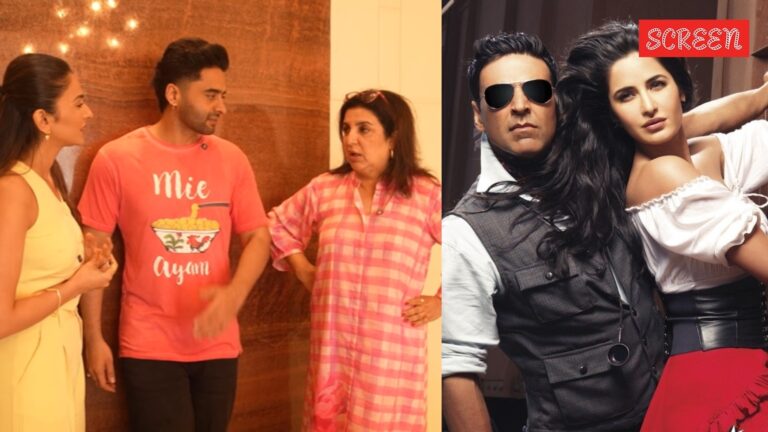Anurag Basu’s Metro… In Dino attempts to portray the emotional complexities of modern love, but beneath its mosaic of stories lies a troubling pattern: women still sacrificing more than they should, forgiving more than they must, and quietly disappearing into the background of someone else’s story. For all its depth and beauty, the film leaves behind a haunting truth — not much has changed in 18 years, even within Anurag’s own cinematic universe.
Let’s rewind to 2007. In Life in a… Metro, Shilpa Shetty’s character Shikha discovers her husband Ranjeet (Kay Kay Menon) is having an affair. Around the same time, she experiences emotional closeness—and perhaps the beginnings of love—with another man (Shiney Ahuja). But when her husband finds out, he leaves her in anger, despite his own long-term infidelity. Only after his affair ends (when Kangana Ranaut’s character falls in love with someone else) does he return to his wife. Her emotional growth, her right to heal or explore affection, is overridden by the weight of marital and societal expectations. His betrayal is forgiven; her emotional escape is not.
 Shilpa Shetty and Kay Kay Menon in Life in a Metro. (Photo: Kate Taylor/YouTube)
Shilpa Shetty and Kay Kay Menon in Life in a Metro. (Photo: Kate Taylor/YouTube)
Fast forward to 2025. The emotional dynamics remain eerily similar. This time, it’s Kajol (Konkona Sen Sharma) in Metro… In Dino, who faces them. In a strong statement, she tells her mother Shibani ( Neena Gupta): “Mujhe kabhi na apke jaisa banna nahi tha (I never wanted to turn out like you). I have become a doormat just like you and I hate myself for it!” It’s a brutal confrontation—one woman facing another about inherited emotional silence and generational compromise.

Her husband Monty (Pankaj Tripathi) has cheated on her seven times. She walks away, chooses herself, and begins to heal. But the film circles back. Her husband’s efforts to “win her back” are rewarded with reconciliation. The woman who dared to speak out ends up folding in. Just like how Shibani did, years ago when she was cheated on by her husband Sanjeev (Saswata Chatterjee).
The arc of Fatima Sana Shaikh’s character Shruti is just as heartbreaking. An adventurous, career-oriented woman, she marries the love of her life Akash (Ali Fazal) not by choice but due to parental pressure. Their pregnancy? Again, a result of external expectations. Shruti quits her job to support him, and prepares herself for motherhood, only for Akash to back out—fearful of fatherhood, consumed by his playback singing dreams. She agrees to an abortion. They go to different cities, chasing separate careers.

But Shruti returns and quits her job again to support Akash, who remains emotionally unavailable and deeply insecure. She is emotionally isolated and physically burdened. He barely notices. In the end, Akash gets his dream job. Shruti aborts silently. They reunite, get pregnant again, and the film closes with her doing the emotional and physical labor of motherhood while Ali records music. The final image—Fatima driving, shopping, handling a baby—speaks volumes: men get to dream, women get to survive.
Story continues below this ad
Yes, characters like Shibani and Chumki (played by Sara Ali Khan) experience some form of fulfilment. Shibani reconnects with her passion for theatre and forgives her husband. Chumki slaps her predatory boss, walks out of an ungrateful engagement, and chooses a kinder man Parth (played by Aditya Roy Kapur). But even these arcs are rooted in men or romantic endings. There is no space for unaccompanied self-actualisation.
What’s especially frustrating is how the film dresses these compromises as victories. The camera never lingers on what the women give up—careers, dignity, peace. Shruti’s abortion isn’t a conversation; it’s a background act of sacrifice to Akash’s foreground success. Kajol’s return to her husband isn’t celebrated, but it isn’t challenged either. It’s presented as… inevitable.
These aren’t isolated choices—they reflect a larger cinematic pattern. In Indian films, even those marketed as progressive, women often begin with strength but are guided gently back into the fold of duty, sacrifice, and quiet endurance. Rarely do they end with freedom, selfish joy, or glorious solitude.
Story continues below this ad
Yes, one might argue that Anurag Basu is simply portraying real-life truths. But when every woman’s arc bends toward compromise, it stops being realistic and becomes romantic fatalism—the idea that no matter how far women stretch, they must return. That even if they find themselves, they will always come home—to someone else’s home and someone else’s dream.
It’s very rare when films end with woman choosing themselves over any and everything. This rarity was seen in the 2023 film Mrs.

Originally made in Malayalam as The Great Indian Kitchen, and later remade in Hindi with Sanya Malhotra in the lead, Mrs offers a rare cinematic pivot. Sanya plays Richa, a homemaker who begins to question the structure of her marriage and her life after a traumatic incident shatters her perception of safety and identity. Unlike so many stories that glorify sacrifice, Mrs dares to ask: What if she chooses herself instead?
Richa’s journey is not loud or violent. It is gentle, yet unyielding. She chooses freedom over familiarity, selfhood over silence, dignity over duty. Her walk away from an unworthy life is not dramatic—it is seismic in its stillness. And that’s what makes it revolutionary.
Story continues below this ad
Where Metro… In Dino frames forgiveness as closure, Mrs offers something far more radical: a woman walking into the unknown without guilt.
While Basu’s film may reflect emotional truths, it risks normalising them. In contrast, Mrs shows us that a woman doesn’t just have to endure the world. She can step out of it entirely, on her own terms.
Because sometimes, the most powerful thing a woman can do is not forgive, not return, and not compromise—but simply choose herself. Yes, it’s hard to walk away from comfort. Very few dare to take that step. But if women in cinema won’t choose themselves, how will women in reality ever dare to?
P.S. For the first time in my life, I didn’t want to hear Pritam Da. The music, though beautiful in parts, felt excessive. After a point, the songs began to grate more than they moved.

























